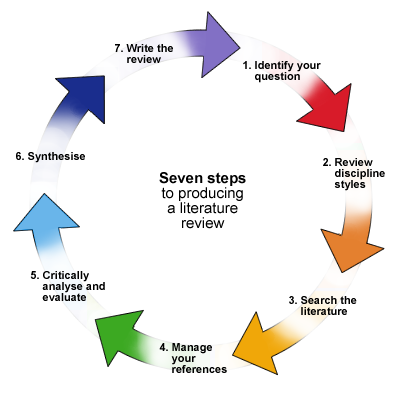How to write a good literature review for your Dissertation
A Dissertation is a well-written document based on your extended reading and research on the particular topic at Masters and a higher level of Studies. It involves necessary knowledge and much quality time to ensure a good dissertation for the research paper. The student should carry the ability to analyse the relevant information critically before the submission of his /her research project.
Writing a faulty literature review can be proof to be a barrier in your career making path. So students should seek the advice from their professors and lecturers on ways to improve their literature review. Hence the maximum concentration should be on gathering the right knowledge and information from the reliable sources, which may be class notes or from the library or over the Internet.
First, after having chosen the topic, a detailed study on the topic is needed in their field of research. A deeper analysis into the subject is the initial step to a good literature review. Lack of knowledge can be harmful. As it is said truly that little knowledge is more dangerous. While academically you will be supported in by your supervisor in your dissertation but it solely depends on you that how you will be compiling your holistic knowledge and skills on your research subject. A good literature review is much beyond the authors' and academic knowledge. It caters on how much understanding and how you can give a new definition to your chosen dissertation.

It is important to combine relevant theories and alternative readings while forming your own critical knowledge about the author's writing. Attend workshops, seminars and other discussions which when held related to the dissertation. It would provide a good understanding of the subject. Always remember your review on the subject is the more important as it helps the supervisor to understand how deep you know about your research subject. Students must show evidence of their independent thinking and plan to manage the project within the deadlines.
Second, a good literature review must be well constructed, and fresh ideas must flow logically with proper relevancy. The student should have a rough framework of the review ready after having taken notes while reading the literature. Arranging sufficient amount of material for the review, it is a good time to start with the final work of completion of your document. Keep your reviews focussed on the relevancy of the topic, a diversion from it will lead to a derail dissertation. Identify new ways to interpret, discuss it critically while identifying methodological problems and point the way to further research on the topic.
Third, the review should be properly structured. A logical way of writing and organising the work marks a good dissertation. The goal should be to resolve a debate within the field of work or to Meta - analyse it by reviewing it technically. A brief description of the topic, the aim, research objectives and research questions are to be addressed. A literature review indicates the detailed research of the works of major authors in your field, studying the major themes and objectives relevant to the subject area. Providing a deeper and sharper observation to the addressed question.
Fourth, provide a proper justification as to why a particular topic has been selected by you and is most appropriate for your research. Finally remember to provide a solution as to how the topic is still relevant in the present day time.
Supervisor always looks for a new direction in your writing. This new direction exhibits your attitude towards the work that you have presented. Keep a positive and a critical opinion on the topic as it gives you space to advocate, argue and refute your understanding of the topic. The student should emphasise on a good dissertation which includes a good standard of clear English, well structure, systematically focussed, critically analysed, citations and a rational reviews relating ideas and theory to application.
Fifth is to be careful in areas of disagreement. To negate or disagree with the well-established thoughts can be challenging. The review must provide sufficient evidence as why it disagrees. Highlight the gaps in the studies, explain critically and provide established exemplary studies to support your point. One should bear in mind that while in disagreement one should not hurt the sentiments of others. One should disagree using diplomatic terms. In such scenarios of disagreement, the reviewer must provide the alternative best approach or other best line of thought.
Sixth is the conclusion. The conclusion should always end on a positive note with full of enthusiasm. It should provide a brief summary of the entire lecture provided above in the review and what would be the best out of it and new promising methods of research.
The piece of work should be convincing enough so that it endeavours into a good literature review for the dissertation.